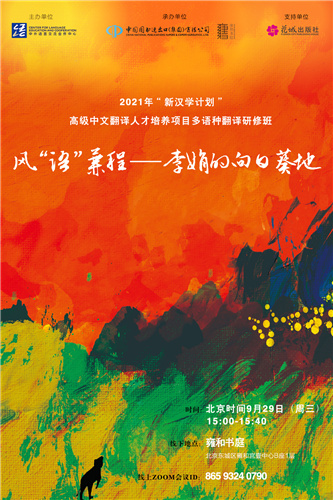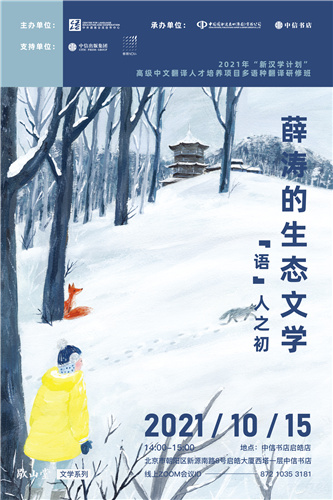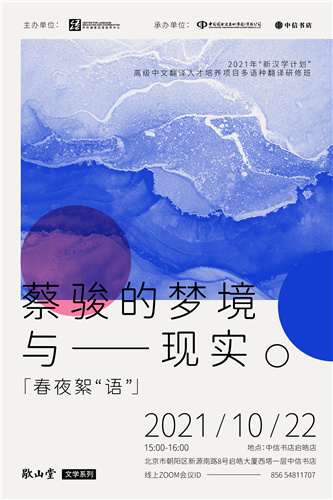

When discussing his experience translating Li Juan's work Winter Pasture, British Sinologist Jack Hargreaves used vivid metaphors to express his feelings. He likened Winter Pasture to a snow lotus flower blooming on Tianshan Mountain. He compares himself, a translator, to a gardener who needs to take care of the lotus and carefully transplant it to another place. He also shared with the guests two words he thinks to be very important to him in his translation, namely "wilderness" and "silence." He said he believed these frequently used words embody the entire atmosphere of the book and set the background of its story.
Polish Sinologist Malgorzata Religa is an experienced translator of Chinese literature. She shared her experience translating A Yi's novel What Shall I Do Next. She said due to the enormous linguistic differences between Polish and Chinese, innovation is one of the essential things in translation. A translator must focus on capturing the detached, cold-hearted style of this book. For this reason, she and the publisher finally decided to translate the book's title into I'm a Murderer. After the translation's publication, it became a hit in Poland.

Jacopo Maria Lasala is a young Italian Sinologist. He shared his experience translating Xue Tao's Sand and Stardust, saying there is a vast difference between Italian and Chinese. Lasala used the word ying (eagle) as an example. The Chinese word is genderless, but it is feminine or masculine in Italian. After repeated considerations, he finally realized the maternal characteristics of the "eagle" in Xue's book. So, he translated the bird into the Italian "la aquila" (mother eagle), thus solving the problem caused by language differences. Xue expressed his satisfaction with and admiration for the Italian Sinologist's version, adding the translator's effort was a recreation process that put lots of "icing" on the "cake" of his book.

Li Song, a Sino-French cultural promoter, used the French translation of Cai Jun's Like Yesterday as an example of the problems overseas Sinologists and translators may encounter in translating Chinese literary works. For instance, the sentence "(He) looked up at the sky like Pang Tong had done at Luofengpo" in the book alludes to a Chinese historical incident. Pang Tong was an advisor to the warlord Liu Bei in China's late Eastern Han Dynasty, and Luofengpo was where the former died in action. However, the French version of the sentence was literal and had no cultural significance. Another example is the legend of the "Nine-dragon Pillars" on the Yan'an and North-South overpasses in Shanghai Cai mentions in his novel. The pillars are of historical and cultural significance to Shanghai, but they present tremendous challenges to overseas translators. Therefore, he suggested when translating Chinese literary works, it is best to have a Chinese scholar do some auxiliary work for them, which will help improve the accuracy of their translations.